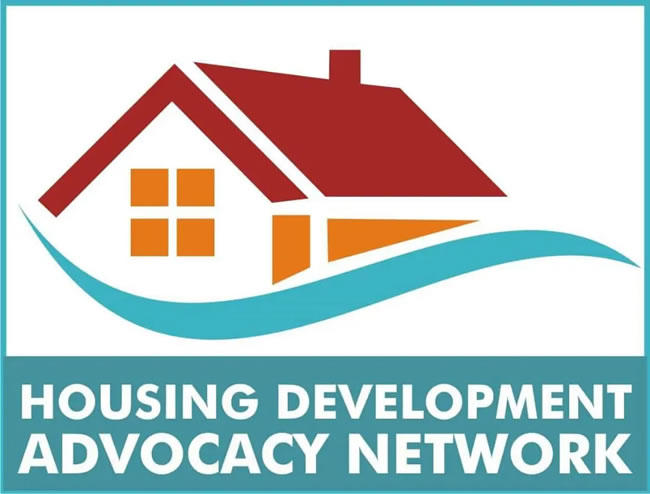Housing Development Advocacy Network (HDAN) has bemoaned the Federal Government’s allocation of N88.14 billion to the Federal Ministry of Housing and Urban Development in the 2025 budget, saying it’s too small when compare with the Nigeria’s huge housing deficit that needed to be bridged.
According to the group, it is a clear indication that affordable housing for poor citizens is not on the priority list of the present government
Expressing his disappointment over the issue, HDAN’s Executive Director, Festus Adebayo, stated that the budget allocation was grossly inadequate to tackle the country’s estimated 28 million units housing shortfall.
Adebayo noted that such insufficient funding undermines the government’s Renewed Hope Agenda, which aims to deliver 20,000 housing units annually.
He called for a substantial budgetary increase to N500 billion and above, citing that an average cost of N6 million to N10milion per housing unit is required to meet the presidential deliverable.
“Unlike other sectors, budgetary provision for housing is retrievable when houses are sold. The money comes back to the government after creating jobs and boosting economic development. At least 70 per cent of the expenditure can be recovered, even if the houses are subsidized,” Adebayo noted.
He contrasted the housing sector’s potential for economic returns with other ministries such as works, education, and transportation, where allocations are typically sunk costs with no direct financial recovery.
Adebayo urged President Bola Tinubu to show greater commitment to the housing sector by addressing the poor allocation in the budget.
“Government needs to match its talk on housing with action. The Renewed Hope for Housing will not be realized if the Ministry of Housing continues to be starved of funds,” he warned, adding that the reduced budget down from N99 billion last year to N88 billion this year, does not reflect a serious approach to tackling Nigeria’s housing crisis.
The HDAN leader further criticized the lack of provision for key initiatives like the Family Homes Fund Limited, Federal Mortgage Bank of Nigeria, Nigerian Mortgage Refinance Company, calling for a more conducive environment for them to thrive, as he commended the government’s establishment of the MOFI Real Estate Investment Fund, expected to launch in 2025.
“HDAN will be at the forefront to ensure that MOFI’s mandate is achieved and that Nigerians benefit from these initiatives,” he added.
The housing ministry’s allocation was highlighted as disproportionate compared to other ministries.
For example, the Ministry of Works received over N926 billion, the Ministry of Water Resources and Sanitation -N114 billion, and the Ministry of Power N531 billion.
Adebayo queried why a sector with significant economic and social benefits continues to be underfunded.
“This disparity underscores a lack of prioritization of housing, which is a critical need for Nigerians,” he said.
Experts in the housing sector echoed HDAN’s concerns, noting that the 2025 allocation is insufficient to reform the sector, expand housing infrastructure, or address the growing housing deficit.
The rising costs of building materials and the foreign exchange crisis were cited as additional challenges.
Adebayo emphasized the need for government intervention in developing local building materials and stabilizing foreign exchange rates to curb escalating construction costs.
HDAN also called on the National Assembly to urgently intervene and ensure an increase in the allocation for housing and urban development in the 2025 budget while the proposal is still under review.
Adebayo said this critical adjustment, before the budget’s final passage to Mr. President, will demonstrate a strong legislative commitment to addressing Nigeria’s severe housing deficit.
He recommended alternative approaches, including rental housing schemes with ownership options, partially completed housing units to lower initial costs, and site-and-services schemes that provide infrastructure, enabling citizens to build at their own pace.
He also stressed the importance of engaging professionals in policy implementation and maintaining public buildings to ensure sustainability.
Adebayo urged policymakers to prioritize the housing sector in the 2025 budget, calling for deliberate and systematic planning to reduce the housing deficit.
“If we plan to build 20,000 units this year, we should aim to double that next year. A deliberate and systematic approach is needed to reduce the housing deficit consistently,” he said.
He also called for improved oversight to ensure that allocated funds are effectively utilized, delivering the promised housing units within the specified timeframe.
With Nigeria’s housing deficit showing no signs of abating, HDAN’s calls for increased funding underscores the urgency of aligning budgetary allocations with the pressing need for affordable and sustainable housing solutions. Without significant financial and policy interventions, the Renewed Hope Agenda for Housing and Urban Development risks falling short of its ambitious goals.
HDAN is a nonprofit organization dedicated to advancing affordable housing in Africa.
